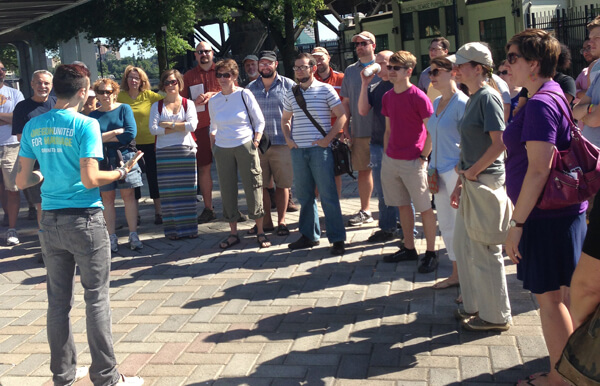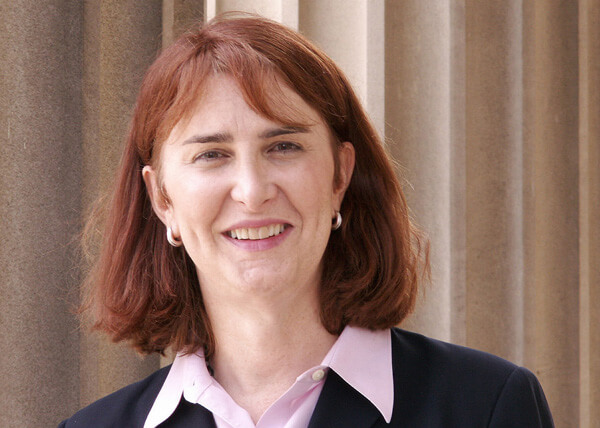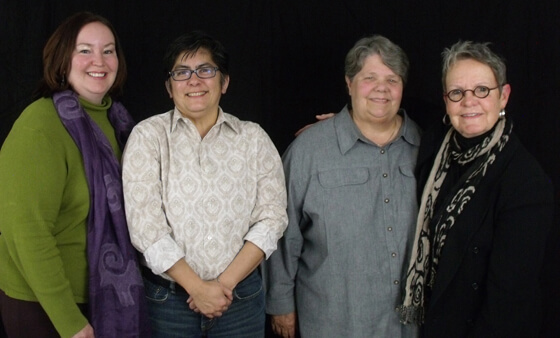Claiming that a married lesbian had no need to adopt the child born to her same-sex spouse, a Surrogate Court judge in Brooklyn has refused to entertain her adoption petition.
In a January 6 opinion, Surrogate Court Judge Margarita López Torres reasoned that under New York’s Marriage Equality Law, in same-sex marriages, as in different-sex marriages, a child born to a married woman is presumed to be the legal child of that woman’s spouse, and both names are placed on the birth certificate as a matter of course. An adoption decree to document the spouse’s parental status, López Torres said, was “neither necessary nor available.”
That decision flies in the face of advice LGBT lawyers routinely give to women in this situation. The couple here, identified in the court’s opinion as A.C. and M.M., married in Connecticut in 2011 and their marriage was legally recognized in New York, even before the law changed here, due to court decisions dating back to 2008. Their son’s birth certificate records both their names as parents, as well.
Brooklyn judge says marriage equality makes it unnecessary and unavailable, but out-of-state concerns persist
But the women live in a country with a patchwork of marriage recognition laws and where more than 30 states ban recognition of same-sex marriages — even if several are battling court rulings to the contrary. On the other hand, it is well established in law that a judicial adoption decree will be given full faith and credit by the courts of other states, even if those states would not themselves allow same-sex second-parent adoptions. For that reason, legal advocates counsel an adoption proceeding to minimize the risk of complications when same-sex married couples with children travel or relocate across state lines.
Quoting a Manhattan ruling in a 2009 case with a very different set of facts, López Torres wrote that the purpose of an adoption was “to create a new legal relationship where one did not previously exist… Adoption is not utilized for, nor is it available to reaffirm, an already existing parent/ child relationship.” She said that prior to New York recognizing out-of-state same-sex marriages and then allowing them here she would have approved this adoption petition “without any hesitation whatsoever”.
However, she continued, “today no such action is warranted or permitted by this court to affirm an existing, recognized, and protected parent-child relationship between the petitioner and her son. Indeed, were this court to entertain the instant petition, such action would imply that, notwithstanding the existing and lawful marital relationship between the petitioner and her spouse, true marriage equality remains yet to be attained, and that, although legally recognized in this state, a same-sex marriage remains somehow insufficient to establish a parent-child relationship between one particular parent and any child born within that marriage, thereby raising equal protection concerns.”
As a practical matter, however, such true equality exists, as it were, in a bubble consisting of the states in which same-sex marriages are recognized. The US today is a highly mobile society in which movement in and out of that bubble is predictable. On that point, López Torres noted a recent Ohio federal court decision — now under appeal to the Sixth Circuit Court of Appeals — ordering Ohio to recognize, on equal protection grounds, an out-of-state same-sex marriage (for purposes of listing marital status on a dead certificate) as proof of the “tectonic shifts occurring in the geography of our culture’s definition of ‘family,’ particularly with respect to the increasing recognition of the right to marriage equality and adoption by same-sex families, as well as the ethical complexities arising from assisted reproductive technology.”
López Torres is not unaware of the problems that could arise for couples moving to states that don’t recognize their marriage, but predicted that such a state would be “equally likely to deny full faith and credit to decrees of adoption issued to same-sex couples by a New York Surrogate’s Court.” But that assertion doesn’t square with the fact that non-marriage recognition states have so far lived up to their constitutional obligations to honor adoption decrees. That’s precisely why LGBT attorneys recommend the second-parent adoption route to their married clients.
The New York Law Journal reported that López Torres told the couple’s attorney, Michael DiMauro, that she had previously granted adoption petitions where the same-sex spouse’s name was not on the child’s birth certificate, but that the situation was different for his clients. DiMauro told the Law Journal the ruling was “a great advancement for the gay and lesbian community” in affirming that adoption was not necessary for the same-sex spouse of a birth mother to be recognized as a parent as well, but said the women were “uneasy” about prospects for future travel or relocation out of state.
López Torres’ decision could be appealed to the Appellate Division.




































